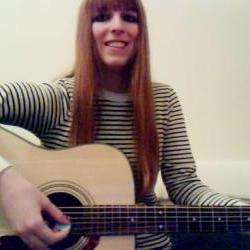At Lincoln Center’s Stanley Kaplan Penthouse, music drips through the air like wax from the candles on the tables scattered throughout the space. At late-night concerts, part of the annual Mostly Mozart Festival, concert-goers can listen to works by and influenced by Mozart while drinking wine and drinking in the view from the tenth floor. Giant windows look out at the lights and buildings of Manhattan arranged like statues in a museum, blinking blankly in all directions. “A Little Night Music” is a fantastic tradition that gives audiences a cozier, less stifled experience than a more traditional performance.
The stars of Saturday night’s show were the members of the Calder Quartet: Benjamin Jacobson, Andrew Bulbrook, Jonathan Moerschel, and Eric Byers. They performed their “two favorite seven-movement works”: the quartet Arcadiana by Thomas Adès, and Beethoven’s String Quartet in C sharp minor, Op. 131. The first was composed in 1994, when the composer was in his early 20s and embarking on his career, while the second was composed in 1826, at the very end of the composer’s life. First we would hear sounds looking towards the future, followed by sounds looking back on a turbulent past.
The seven movements of Arcadiana took us from the canals of Venice and through a “mortal tango”, then led us along a serene scene (with a stormy horizon) and then to England before a final fade-out. After the pitter-patter and spectral waves of sound during the first movement, the players dived into the second movement, “Das klinget so herrlich, das klinget so schön”. The ending of this movement, a surprising Mozart quotation, instigated a ripple of laughter among the audience. The third movement, extremely moving, saw a return to the water theme of the first; then came the tango; then we heard slow and sublime serenity and notes tiptoeing upward. Gestures were pencilled from the higher registers like graphite sketches on paper before the final fade to silence. It was a scrupulous performance of a work by one of the most fascinating living composers.
The contrast of the late Beethoven was excruciating but effective. The opening flickered through the air like the candles burning on our tables, fugal and funereal. It is difficult to describe such music, which is more than just notes: the fluid transference of anguish across space and time. As the voices seeped across each other, I found myself feeling heavy with the weight of the wine and Beethoven’s burdens. Even during the livelier movements, the anguish was always hovering near, creating a sort of jaunty sadness. The musicians, occasionally breaking a sweat, chugged along like the music, so that the four voices bled together into what seemed like a single instrument. The subtle entrances and overlaps were matched with expert divides between sound and silence, etching out a tension that was finally broken by an energetic ending.
In contrast to Saturday night’s concert, on Sunday afternoon I found myself listening to yet another quartet perform in yet another eccentric venue. Read more here.


